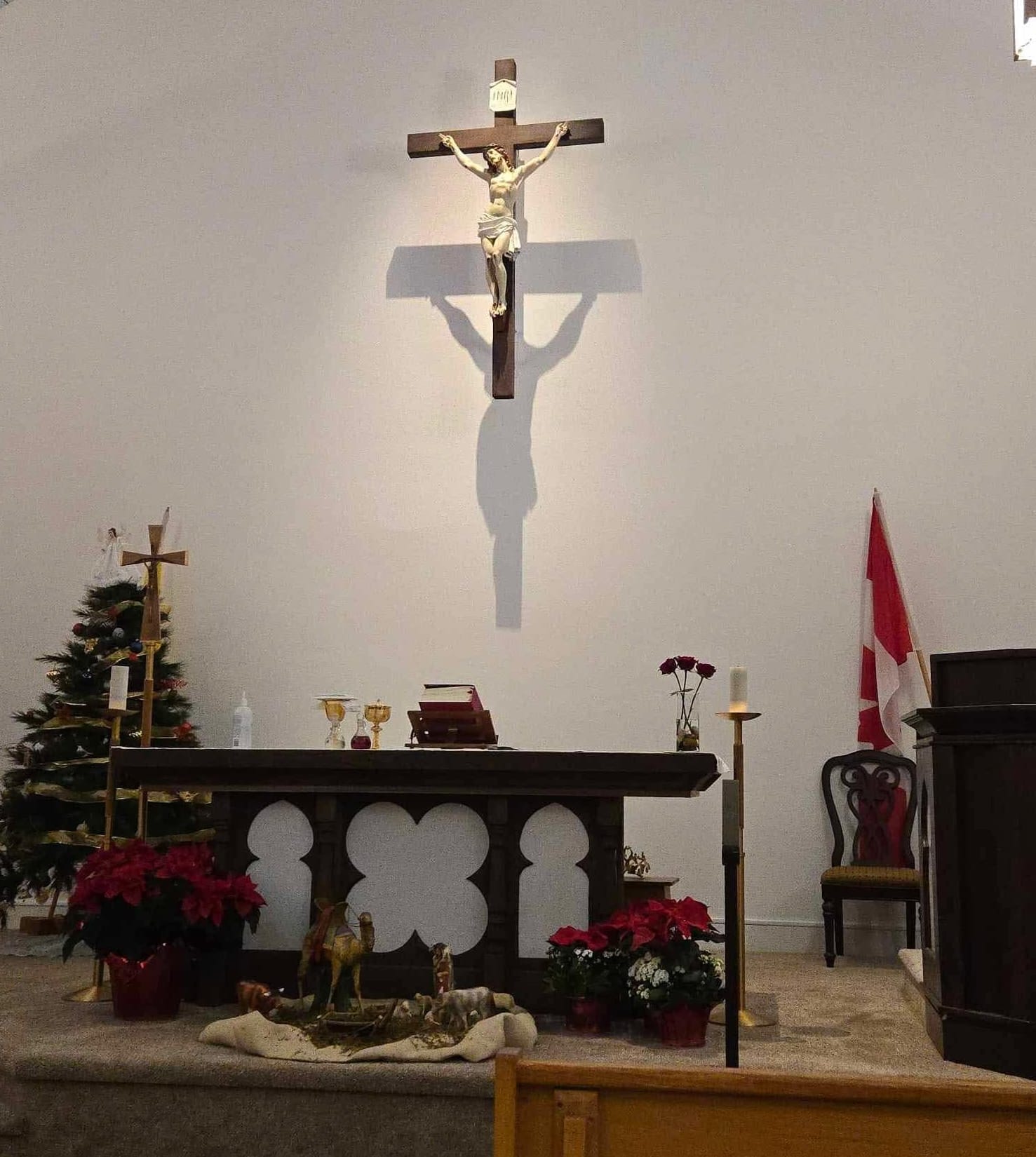
Christmas 2024: “Simbang Gabi” in Corpus Christi Church at Kelowna, British Columbia. No matter where a Filipino is, keeping the Christmas tradition of completing the “Simbang Gabi” is alive. (Photo courtesy of Kristheta Dolor)
MANILA, Philippines — No matter where a Filipino is, keeping the Christmas tradition of completing the “Simbang Gabi” is alive.
Simbang Gabi is a series of nine early dawn or night masses, which is fundamental to the Filipino Christmas celebration. The ninth Mass takes place on December 24, Christmas Eve.
For Alexa Marie Dolor, a 24-year-old accounts receivable specialist in Canada, attending the nine night Masses for the first time is fulfilling.
“It feels fulfilling and it feels like I have made a difference in my own spiritual life. I feel very complete on the ninth night. I feel like I did something good and valuable,” Dolor told INQUIRER.net.
READ: ‘Simbang Gabi’ not about time but participation, says prelate
According to Dolor, she never got to attend Simbang Gabi when she was in the Philippines. Now that she made it, she felt that completing the nine-day Mass is good for her soul.
“It’s like I feel na (that) God will be happy if I do it. I know He will be pleased. And I also believe na (that) doing this, completing the nights, will do my soul some good,” she said.
Dolor said the Simbang Gabi at Corpus Christi Church in Kelowna, British Columbia, started December 15, 7 p.m. The Mass was in Filipino this year.
She said it “feels welcoming” this year because many Filipinos also attended the Mass.
Dolor’s family made certain to finish all nine Masses, except for her father who missed some nights because of work.
Some people say that completing the Simbang Gabi could help make one’s wish come true. Dolor wished “good health” for her parents as she attended the final dawn Mass.
READ: Fil-Ams’ Simbang Gabi tradition returns on Dec. 15
While everything seemed familiar, Christmas in Canada was still foreign, according to Dolor.
“It’s quiet and it lacks the chaos we’re used to. Here, it’s simple and straightforward and calm,” she said.
Dolor and her family have been living in Canada for five years now. Over time, they have formed friendships with other Filipinos who also live there.
She said that celebrating the holidays with fellow Filipinos in Canada is “fun and comforting” albeit it “feels different.”
“It’s fun and comforting. It feels different kasi wala ‘yung relatives namin (our relatives are not here). These are all found family, like people we know. But no relatives, we miss them though,” Dolor added.
She spent her Christmas Eve with a family friend, feasting on hot chocolate and “pan de sal” (salt bread) once the clock struck midnight.

